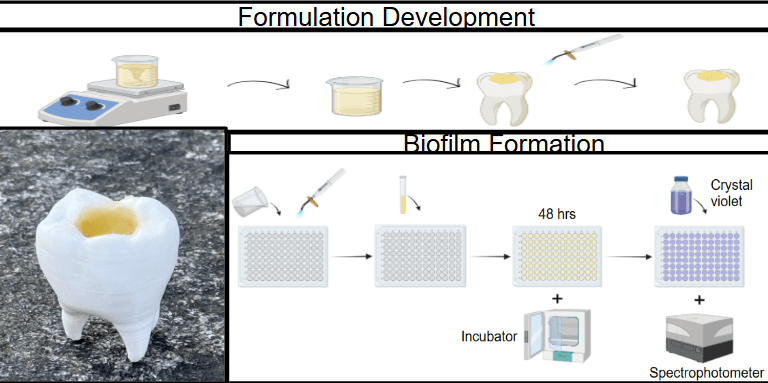Project Description:
This project seeks to enhance the longevity of dental restorations by addressing the frequent failure of dental composite fillers caused by hydrolytic degradation and bacterial infiltration of Streptococcus mutans and Lactobacillus crispatus. Exposure to moisture, bacterial byproducts, and enzymatic activity compromises the dental filler, often leading to secondary caries and costly, repeated procedures. We developed a resin based composite filler with chitosan (1, 2.5, and 5 wt%) for antibacterial functionality and biofilm inhibition, nanoclay (3 wt%) for improved adhesion and mechanical reinforcement, and polycaprolactone (10 wt%) for mechanical properties and added flexibility. Preliminary prototyping results indicate that at 5 wt% chitosan, the material inhibits Lactobacillus crispatus, while all tested concentrations maintain desired material properties, such as elastic modulus and tensile strength, comparable to commercial fillers. By integrating antimicrobial protection with mechanical durability, this novel antibacterial filler has the potential to reduce restoration failure rates, improve patient outcomes, and offer a sustainable, cost effective solution to one of dentistry’s most persistent problems.
